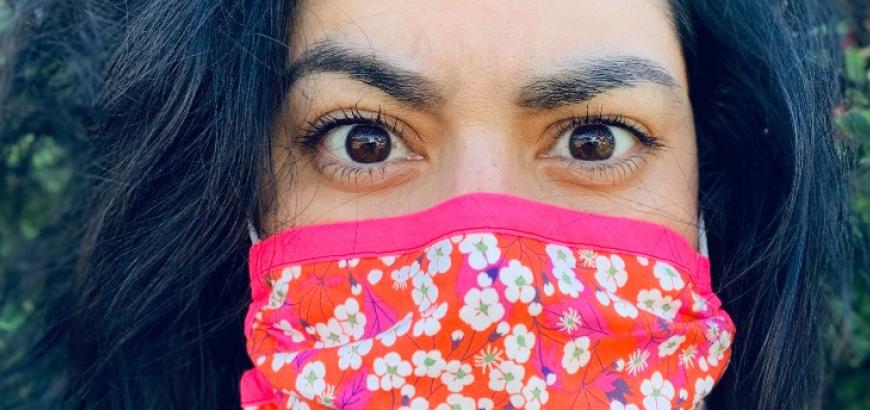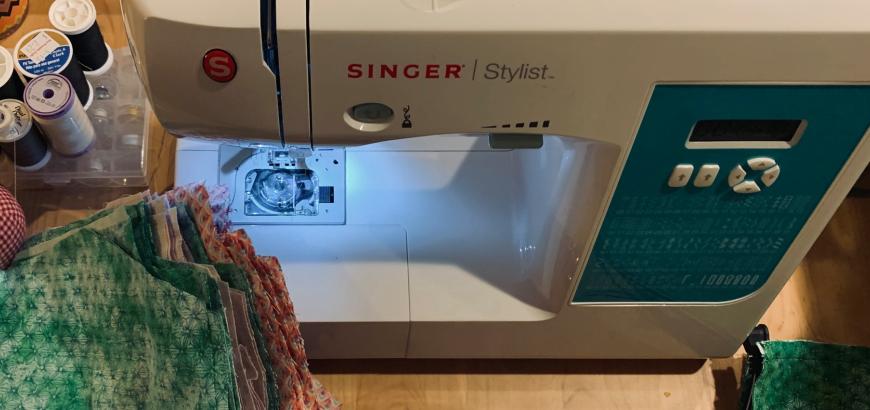UW Music History doctoral student Sarah Kolat had been thinking about medical masks even before the COVID 19 pandemic, when her young daughter Anouk contracted an infection in February 2020 requiring a short hospital stay.
“Last month when Anouk was in the hospital, because the type of infection she had, every member of the staff was required to use full PPE (Personal Protective Equipment) when they came into the room. Gloves, masks, and gowns,” Kolat wrote on Facebook in mid-March. “These were thrown out every time they left the room. This was upwards of 100 sets of PPE.”
By the time of her post, the critical shortage of protective gear for medical workers on the front lines of the COVID-19 pandemic was dominating national headlines. “The shortage of PPE for the medical community is greatly distressing to me,” she wrote. “I have decided to channel this feeling of helplessness into something productive and sew masks.”
Despite having her hands full with a toddler at home and the family adapting to husband (and School of Music Composition faculty member) Yigit’s need to quickly move to online instruction of the courses he teaches at the School of Music, Kolat fired up her Singer and got to work, sewing from 9 p.m. to 2 a.m. most evenings after putting Anouk to bed. She set a goal of eventually sewing 1,000 masks. In answer to her call for volunteers to help cut fabric, School of Music student Jamie Sanidad (MM Oboe Performance) and alumna Erika Meyer (’19 BM Voice, BA Music Theory) quickly offered their services.
Kolat essentially has two operations going: sewing masks for shipment to organizations in need and sewing masks to sell to friends and associates to cover costs of the former endeavor. Quick to specify that her masks are not medical-grade PPE and not intended for such use, she nevertheless has received much positive reception and gratitude from those who have received her shipments, including hospital workers and an organization benefiting children and youth.
In mid-May, Kolat was beginning a shipment of 100 masks to be sent to the Navajo Nation, funded by the sale of masks from her “designer line” of fashionable and comfortable cloth masks with adjustable ear straps. She had sewn 450 masks, nearing the halfway mark of her original goal. "I am working with organizations that support our most vulnerable populations (next set is going to the agriculture workers in the Yakima Valley), and non-COVID-19 medical workers,” she says.
Social media has helped her connect with contacts who can help and contacts who need help. A generous donor offered to cover costs of masks for individuals with financial need. Those masks, too, help to fund the costs of the next community shipment.
"I have enough people buying masks at this point, so I'm at my limit in that regard,” she says, "but people are welcome to contact me if they know of an organization or individual in need. During this time where we must be socially distant, we can find creative ways to be a community.”
To help with this effort, contact Sarah Kolat by email at skolat@uw.edu.


